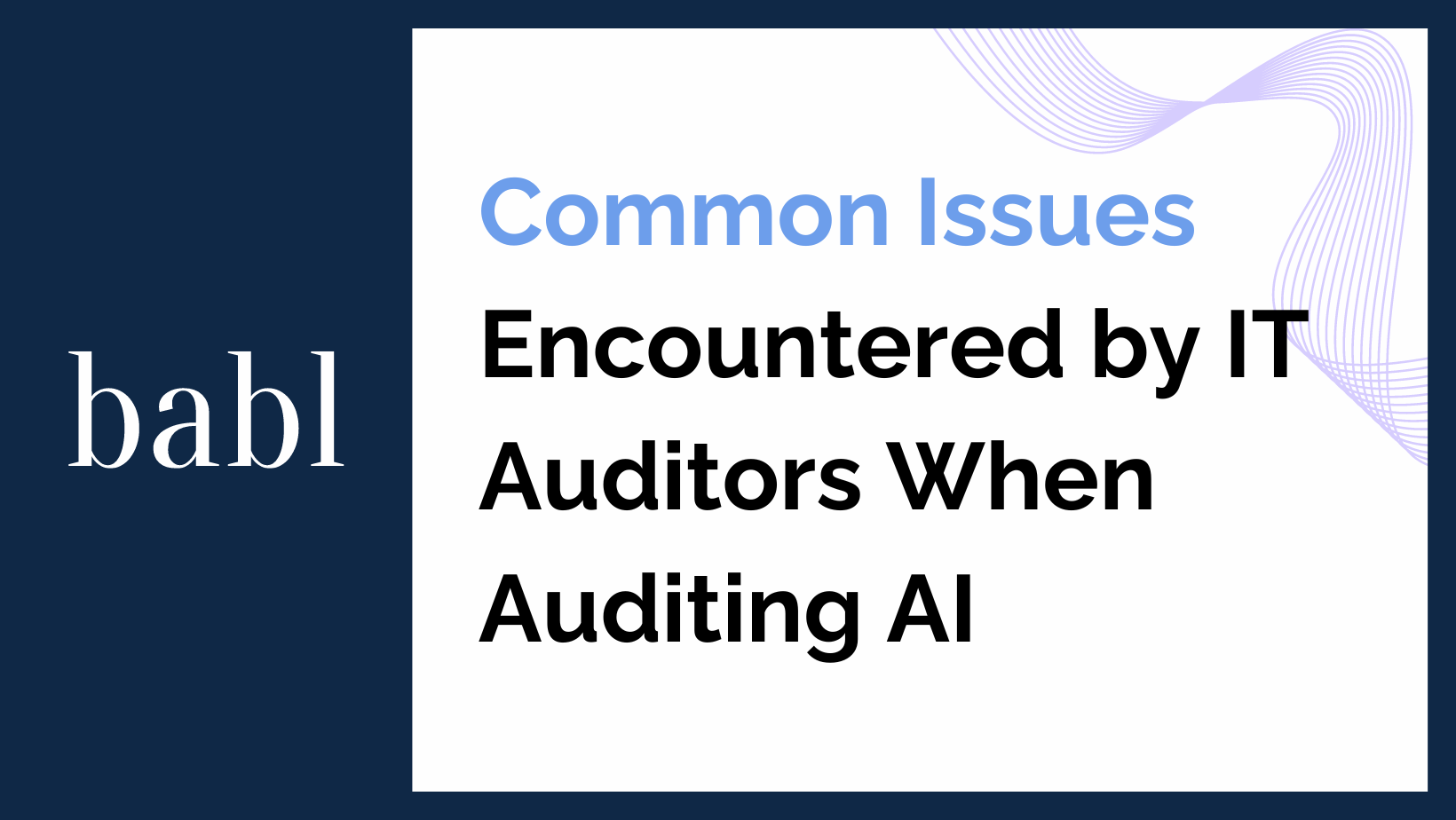Common Issues Encountered by IT Auditors When Auditing AI
As artificial intelligence becomes deeply embedded in business operations, IT auditors face unique and evolving challenges. Their role in evaluating the security, effectiveness, and compliance of AI systems has become more critical—and more complex—than ever before.
Auditing Socio-Technical Systems
One major difficulty is the socio-technical nature of AI audits. Traditional IT audits tend to focus on hardware, software, and processes. In contrast, AI audits must examine the interaction between people and algorithms. This means understanding how users respond to AI-generated decisions, how transparent those decisions are, and whether users trust the outputs.
These human-AI dynamics raise difficult questions: Are users relying too heavily on machine judgment? Do they understand how the model works? Are there risks of biased or opaque outputs? IT auditors must address these issues to ensure that AI systems meet ethical and regulatory expectations.
Transparency and Explainability
AI transparency remains a key concern. Many algorithms operate as black boxes, making it hard to explain how decisions are made. For auditors, this complicates efforts to assess fairness, reliability, and accountability.
To perform an effective audit, professionals must examine:
-
How data flows into the system
-
How the model processes that data
-
What comes out—and why
This process helps identify bias, error, or unethical practices before they cause harm.
Data Governance and Privacy
Another critical issue is data governance. Auditors must ensure that AI systems handle personal data legally and ethically. This includes examining how data is collected, stored, shared, and used.
Key elements include:
-
Strong access controls
-
Data minimization
-
Compliance with laws like the GDPR or CCPA
Without solid governance, AI systems may inadvertently violate privacy rights or expose sensitive data to risk.
Technical Complexity and Model Risk
AI systems also introduce new technical challenges for auditors. These include:
-
Evaluating how well an AI model performs under real-world conditions
-
Detecting weaknesses or vulnerabilities in algorithms
-
Monitoring for model drift or data bias over time
Auditors need knowledge in machine learning, cybersecurity, and data analytics to assess these systems effectively. They must also consider cyber threats, outdated models, and systemic errors that could lead to operational failures or reputational damage.
Conclusion
Auditing AI is not simply an extension of traditional IT auditing. It demands a broader skill set, a deeper understanding of human-machine interaction, and a forward-looking approach to governance and risk.
Therefore, to ensure ethical and secure AI use, auditors must confront challenges like opacity, bias, data protection, and technical uncertainty. By doing so, they help build trust, strengthen compliance, and support responsible innovation.
Need Help?
Also, if you have questions or concerns about AI, don’t hesitate to reach out to BABL AI. Hence, their Audit Experts can offer valuable insight, and ensure you’re informed and compliant.





